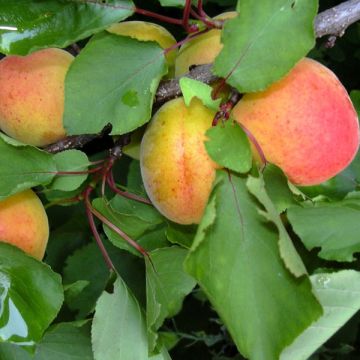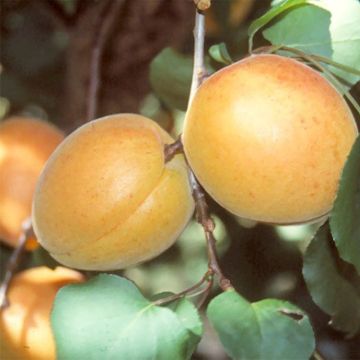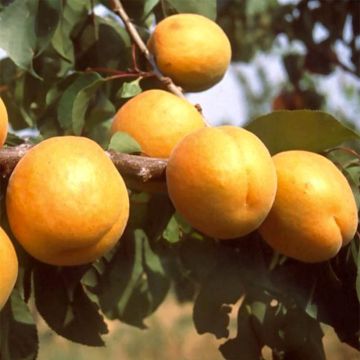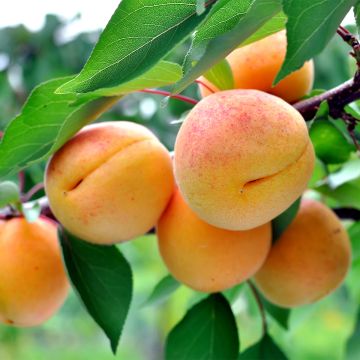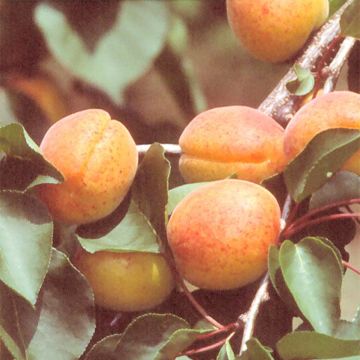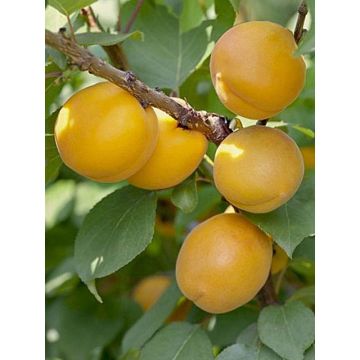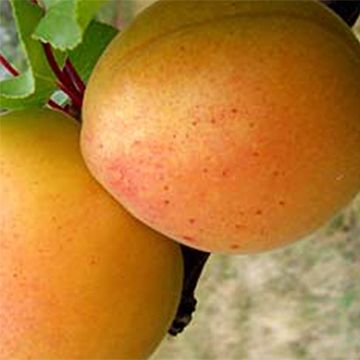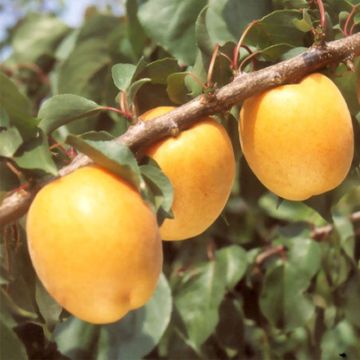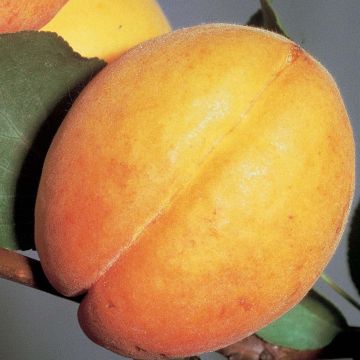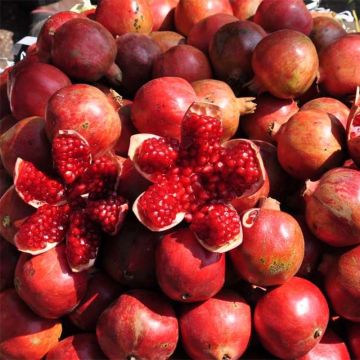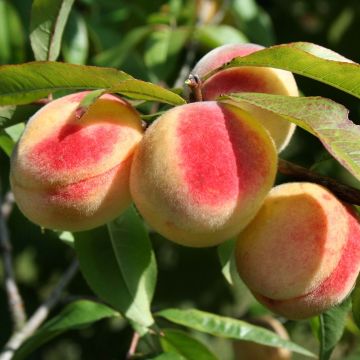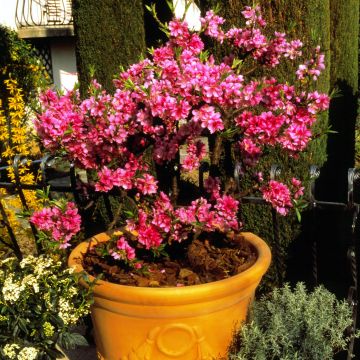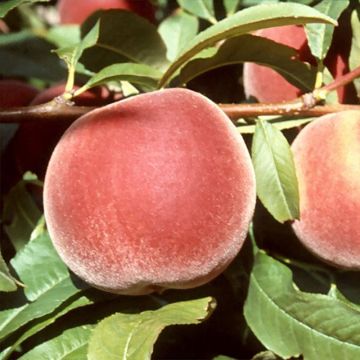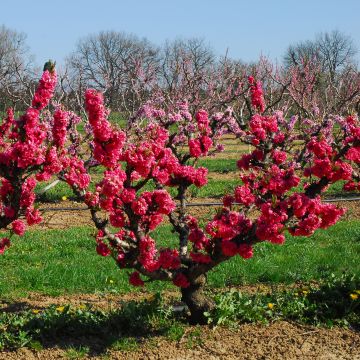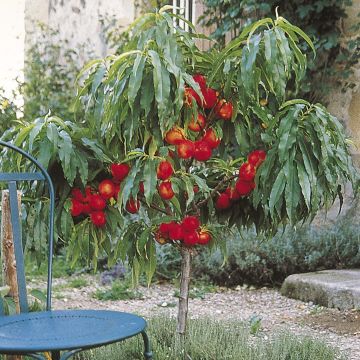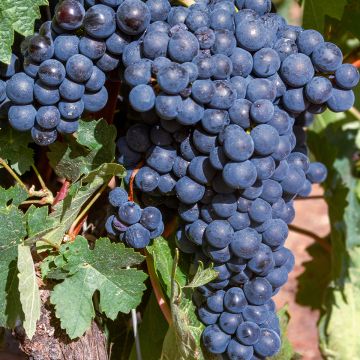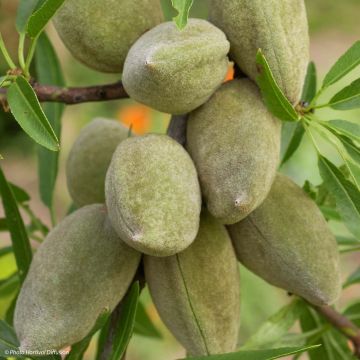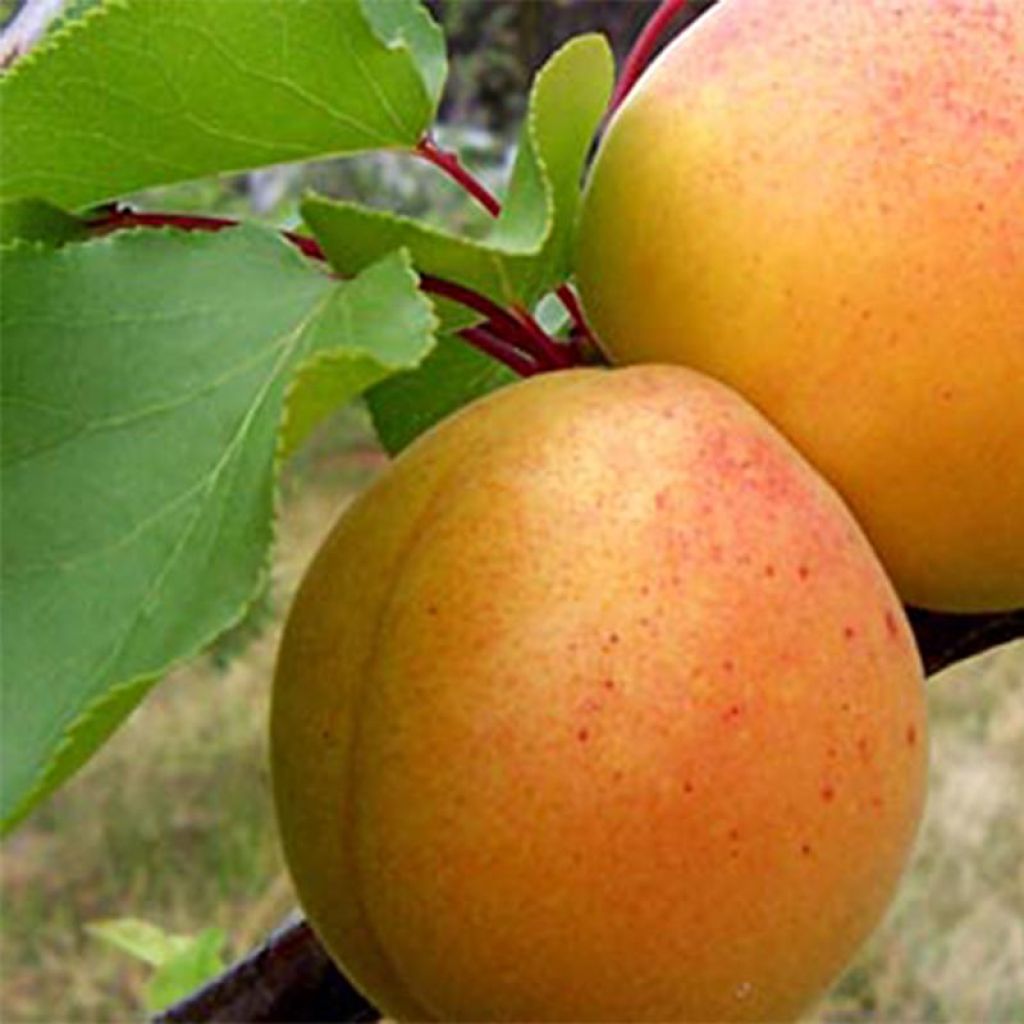

Prunus armeniaca Early Saumur - Apricot Tree
View more pictures
Hide images
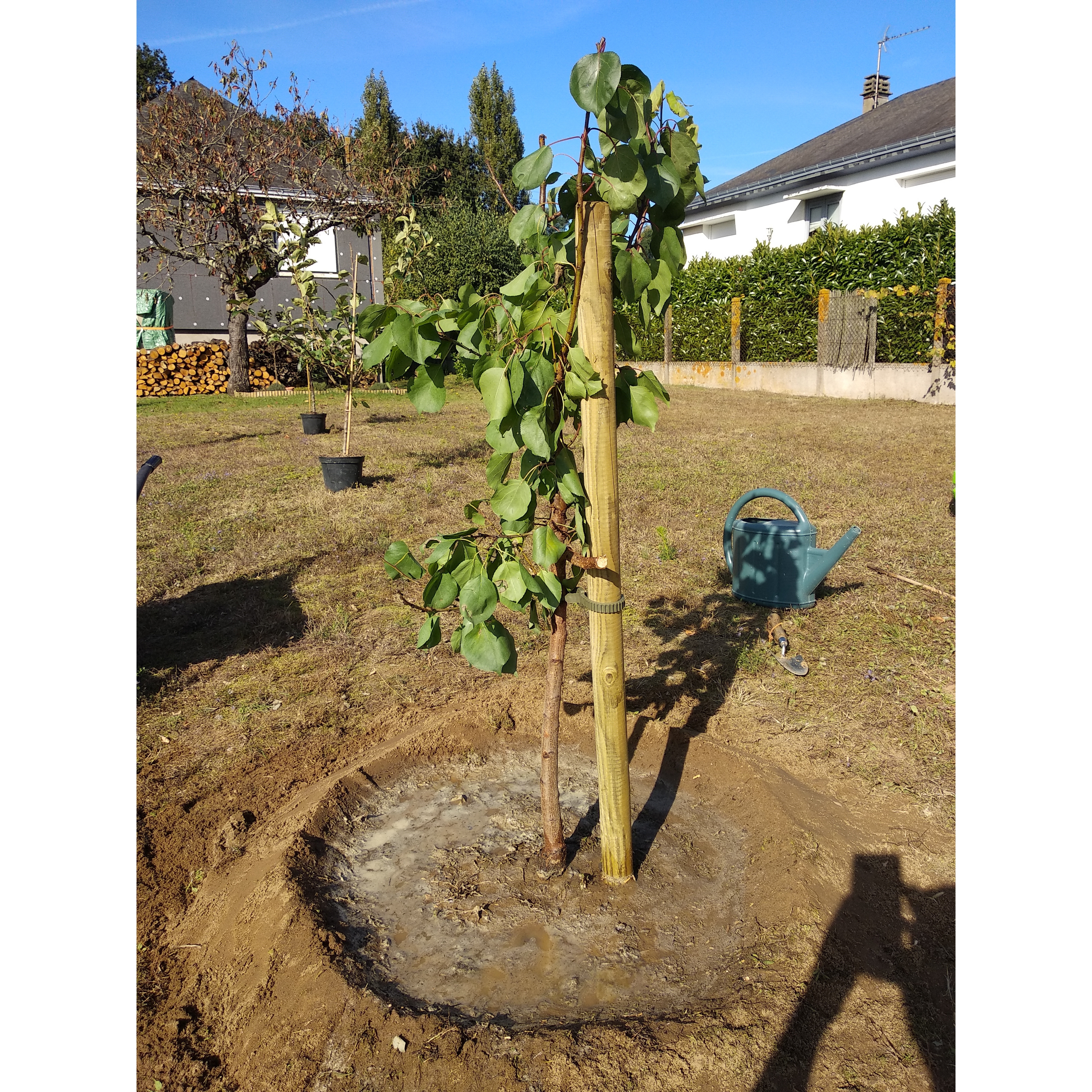
Nicolas B.

N/A
Nicolas B. • 49 FR
Prunus armeniaca Early Saumur - Apricot Tree
Prunus armeniaca Précoce de Saumur
Apricot
Ordered on 15th February, received a week later (blame the delivery driver... anyway) and planted straight away. It's already in bloom by mid-March! I'm delighted!
Flore, 22/03/2023
Special offer!
Receive a €20 voucher for any order over €90 (excluding delivery costs, credit notes, and plastic-free options)!
1- Add your favorite plants to your cart.
2- Once you have reached €90, confirm your order (you can even choose the delivery date!).
3- As soon as your order is shipped, you will receive an email containing your voucher code, valid for 3 months (90 days).
Your voucher is unique and can only be used once, for any order with a minimum value of €20, excluding delivery costs.
Can be combined with other current offers, non-divisible and non-refundable.
Home or relay delivery (depending on size and destination)
Schedule delivery date,
and select date in basket
This plant carries a 6 months recovery warranty
More information
We guarantee the quality of our plants for a full growing cycle, and will replace at our expense any plant that fails to recover under normal climatic and planting conditions.

Description
The 'Précoce de Saumur' Apricot Tree is a self-fertile variety, hardy and highly productive. Its orange fruits, red in the sun, measuring 4 to 4.5 cm (2in) in diameter, have a slightly juicy but fine, melting, sweet and deliciously fragrant flesh. They are highly appreciated fresh, but also in pastries or dried. Thanks to the early ripening of this variety, the fruits can be harvested from late June and throughout the month of July. This variety is well suited to the Central and Northern regions of continental Europe.
The apricot tree is native to Central and Eastern Asia. It has been cultivated in China for 3,000 years before Christ. The apricot tree we cultivate (Prunus armeniaca) was introduced to the Mediterranean basin from Armenia, hence its name, at the beginning of the Christian era. It was introduced to France during the Renaissance. In the 1960s, a chance sowing, due to the construction of a wall, revealed an apricot tree growing on an embankment in the Saumur region. The fertility and productivity of this tree caught the attention of nurserymen, who then cultivated and developed it in Maine-et-Loire and Touraine. The 'Précoce de Saumur' Apricot Tree was born.
The 'Précoce de Saumur' Apricot Tree is adapted to the climate of the Northern parts of the continent. Its hardiness allows it to withstand temperatures as low as -18°C (-0.4°F). However, it should still be planted in a sunny location and protected from North and East winds to prevent flower frost at -2°C (28.4°F). Naturally, the apricot tree has a rounded habit, forming a dome. The branches grow in all directions in a regular manner, hiding 2/3 of the trunk height. The leaves are dentate, heart-shaped, and have a long petiole. It can reach up to 6m (20ft) in height with a diameter of 4m (13ft). It starts producing at 3 years old and becomes fully mature at 7 years old.
The flowering of the apricot tree occurs in March, before the appearance of the leaves. It is early, despite its sensitivity to frost. The flowering is carried by the previous year's branches. The flower has 5 pink petals and purple sepals. It is fragrant, but lasts only a short time. This will result in the ripening of the fruits from late June and during the first weeks of July. The 'Précoce de Saumur' Apricot Tree is self-fertile. Therefore, it does not require the presence of another apricot tree for pollination. It will be an excellent pollinator for your cross-pollinating apricot trees.
Apricots are consumed fresh, dried or prepared: jams, pies, compotes, apricots in syrup etc. They are also found in savoury dishes, such as rabbit with apricots and parsnips, an English recipe. Apricot juices are advantageously mixed with a touch of peach juice to balance the natural acidity of the apricot.
Report an error about the product description
Prunus armeniaca Early Saumur - Apricot Tree in pictures
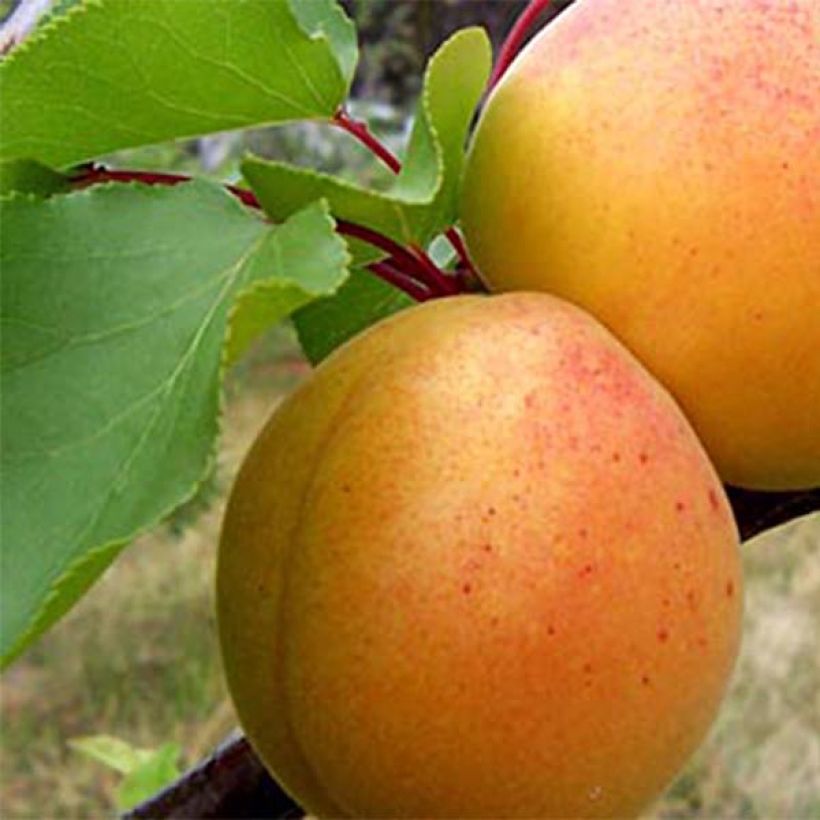

Plant habit
Fruit
Flowering
Foliage
Botanical data
Prunus
armeniaca
Précoce de Saumur
Rosaceae
Apricot
Cultivar or hybrid
Other Apricot trees
View all →Planting and care
Planting preferably takes place at the beginning of winter when the tree is in vegetative rest and before frost. To plant multiple apricot trees, space them at least 1.5m (5ft) apart. Dig a hole two to three weeks before planting, twice as wide and deep as the pot. On the chosen day, place the tree with its pot in a basin of water, in order to moisten the entire root ball by capillarity. Place compost at the bottom of the hole. Install the tree in the hole, fill with soil mixed with compost. Firmly tamp down at the base. The root ball should be completely covered. Water generously.
The Apricot 'Précoce de Saumur' is not very demanding in terms of soil type. It will ideally thrive in a rich and light, cool, and well-drained soil: it cannot tolerate stagnant water. Plant it in a sunny location, sheltered from the North and East winds.
Planting period
Intended location
Care
-
, onOrder confirmed
Reply from on Promesse de fleurs
Similar products
Haven't found what you were looking for?
Hardiness is the lowest winter temperature a plant can endure without suffering serious damage or even dying. However, hardiness is affected by location (a sheltered area, such as a patio), protection (winter cover) and soil type (hardiness is improved by well-drained soil).

Photo Sharing Terms & Conditions
In order to encourage gardeners to interact and share their experiences, Promesse de fleurs offers various media enabling content to be uploaded onto its Site - in particular via the ‘Photo sharing’ module.
The User agrees to refrain from:
- Posting any content that is illegal, prejudicial, insulting, racist, inciteful to hatred, revisionist, contrary to public decency, that infringes on privacy or on the privacy rights of third parties, in particular the publicity rights of persons and goods, intellectual property rights, or the right to privacy.
- Submitting content on behalf of a third party;
- Impersonate the identity of a third party and/or publish any personal information about a third party;
In general, the User undertakes to refrain from any unethical behaviour.
All Content (in particular text, comments, files, images, photos, videos, creative works, etc.), which may be subject to property or intellectual property rights, image or other private rights, shall remain the property of the User, subject to the limited rights granted by the terms of the licence granted by Promesse de fleurs as stated below. Users are at liberty to publish or not to publish such Content on the Site, notably via the ‘Photo Sharing’ facility, and accept that this Content shall be made public and freely accessible, notably on the Internet.
Users further acknowledge, undertake to have ,and guarantee that they hold all necessary rights and permissions to publish such material on the Site, in particular with regard to the legislation in force pertaining to any privacy, property, intellectual property, image, or contractual rights, or rights of any other nature. By publishing such Content on the Site, Users acknowledge accepting full liability as publishers of the Content within the meaning of the law, and grant Promesse de fleurs, free of charge, an inclusive, worldwide licence for the said Content for the entire duration of its publication, including all reproduction, representation, up/downloading, displaying, performing, transmission, and storage rights.
Users also grant permission for their name to be linked to the Content and accept that this link may not always be made available.
By engaging in posting material, Users consent to their Content becoming automatically accessible on the Internet, in particular on other sites and/or blogs and/or web pages of the Promesse de fleurs site, including in particular social pages and the Promesse de fleurs catalogue.
Users may secure the removal of entrusted content free of charge by issuing a simple request via our contact form.
The flowering period indicated on our website applies to countries and regions located in USDA zone 8 (France, the United Kingdom, Ireland, the Netherlands, etc.)
It will vary according to where you live:
- In zones 9 to 10 (Italy, Spain, Greece, etc.), flowering will occur about 2 to 4 weeks earlier.
- In zones 6 to 7 (Germany, Poland, Slovenia, and lower mountainous regions), flowering will be delayed by 2 to 3 weeks.
- In zone 5 (Central Europe, Scandinavia), blooming will be delayed by 3 to 5 weeks.
In temperate climates, pruning of spring-flowering shrubs (forsythia, spireas, etc.) should be done just after flowering.
Pruning of summer-flowering shrubs (Indian Lilac, Perovskia, etc.) can be done in winter or spring.
In cold regions as well as with frost-sensitive plants, avoid pruning too early when severe frosts may still occur.
The planting period indicated on our website applies to countries and regions located in USDA zone 8 (France, United Kingdom, Ireland, Netherlands).
It will vary according to where you live:
- In Mediterranean zones (Marseille, Madrid, Milan, etc.), autumn and winter are the best planting periods.
- In continental zones (Strasbourg, Munich, Vienna, etc.), delay planting by 2 to 3 weeks in spring and bring it forward by 2 to 4 weeks in autumn.
- In mountainous regions (the Alps, Pyrenees, Carpathians, etc.), it is best to plant in late spring (May-June) or late summer (August-September).
The harvesting period indicated on our website applies to countries and regions in USDA zone 8 (France, England, Ireland, the Netherlands).
In colder areas (Scandinavia, Poland, Austria...) fruit and vegetable harvests are likely to be delayed by 3-4 weeks.
In warmer areas (Italy, Spain, Greece, etc.), harvesting will probably take place earlier, depending on weather conditions.
The sowing periods indicated on our website apply to countries and regions within USDA Zone 8 (France, UK, Ireland, Netherlands).
In colder areas (Scandinavia, Poland, Austria...), delay any outdoor sowing by 3-4 weeks, or sow under glass.
In warmer climes (Italy, Spain, Greece, etc.), bring outdoor sowing forward by a few weeks.






























